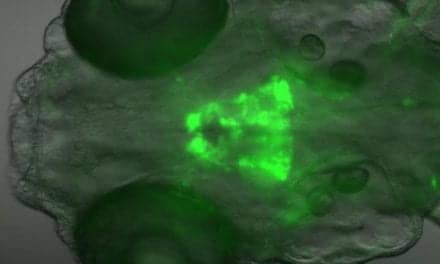A study by a pair of Geisinger Health System physicians reports that the use of opioid therapy to treat chronic pain is not only ineffective, it can actually increase the likelihood of more harmful consequences, including death.
Palliative care physicians Mellar P. Davis, MD, and Zankhana Mehta, MD, authored the study, which provides a review of the current research on chronic opioid therapy. The study was published in the December 2016 edition of Current Oncology Reports.
“When patients are given opioid therapy for chronic pain, there is evidence that it interferes with the body’s natural resolution of the pain,” says avis, who co-chaired the 2015 International Conference on Opioids at Harvard Medical School, in a release. “Opioid therapy may put someone at an increased risk for multiple adverse effects. And it actually has the potential of extending the history of their pain.”
The authors wrote that the risk of addiction, depression, central hypogonadism (where the hypothalamus and pituitary glands don’t function properly), sleep-disordered breathing, impaired wound healing, infections, cognitive impairment, falls, fractures, and death increase in patients on chronic opioid therapy.
The Geisinger physicians acknowledge that the use of opioids has been helpful in reducing the intensity of acute pain (sudden pain due to injury that doesn’t last long) and in managing pain associated with terminal cancer. But they found that the promotion of opioid therapy to treat chronic pain (defined as lasting more than three months) has been common practice without significant research to judge the safety of the practice.
In addition, Davis believes opioids have been over-prescribed by physicians because of limited treatment options.
“There are not a lot of pain management centers providing a variety of effective, non-opioid and non-pharmacologic therapies,” he says. “In addressing the opioid epidemic in our society, we should be putting our efforts into developing more chronic pain rehabilitation programs versus making opioid packaging tamper-resistant to prevent the crushing, snorting, and injecting of prescribed narcotics.”
The authors conclude that the management of chronic pain needs to be vastly different than the treatment of acute pain. They urge physicians to take into consideration the significant delayed side effects and adverse health consequences of opioids.
“Opioids are not the answer,” Davis says. “Chronic pain rehabilitation, exercise, cognitive behavioral therapies, acupuncture, yoga, or tai chi are all better options than opioids.”
Davis will present the findings from his research at the Annual Assembly of the American Academy of Hospice and Palliative Medicine on Feb 22, in Phoenix.




And what happens once you have exhausted all other options? When you exercise, tried accupunture, physical therapy, CBT, yoga…when all that has been tried, opioids ARE effective an appropriate in some patients.
Where are the details of this study by two? Unless you have chronic pain, you do not completely understand and should not be making any recommendations about long term therapy. Especially when what you suggest to do instead has already been done by most, for years. Ask many pain management patients and their doctor specialists and you will come close to what should be done. Problem is now no one listens. We have already suffered for years and everyone is trying to take away the only thing that calms the pain to a level we can stand.